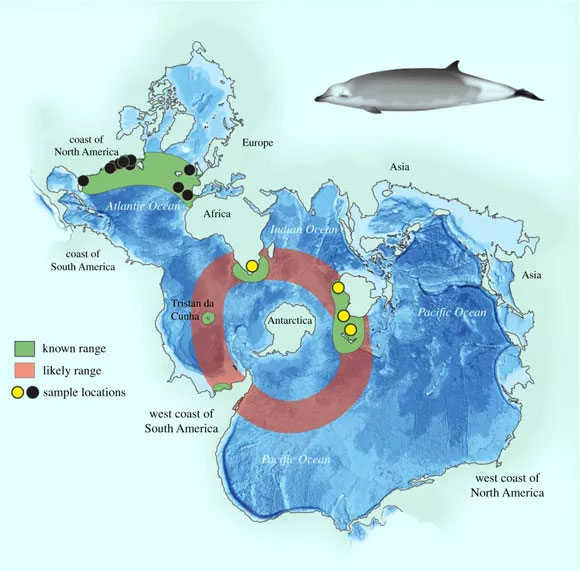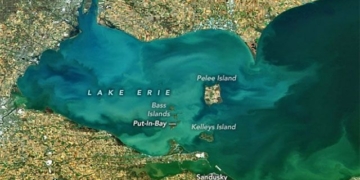A new species has been discovered through the remains washed ashore on the coast of New Zealand 10 years ago, prompting scientists to conclude that Earth’s deep oceans are still less understood than the surface of Mars.
The new species, named Mesoplodon eueu, is found across temperate waters in the Southern Hemisphere, according to surveys from offshore locations in South Africa, Australia, and New Zealand that have long gone unnoticed by humans!
According to a research team from the University of Auckland, led by Dr. Emma Carroll, this strange creature is a beaked whale that lives in deep waters, exhibiting a diversity in taxonomy and many mysteries in its evolutionary history that remain unclear.

Distribution map of the new species identified, with green areas indicating regular habitats, while red areas show locations where individuals have been occasionally spotted – (Image: Vivian Ward, University of Auckland).
The Sci-News reported that this new discovery comes from the research team’s analysis of genetic and morphological data from several specimens stored in natural history museums. One of the specimens did not match any known species: it was the remains of a female whale found on the West Coast of the South Island (Te Waipounamu) of Aotearoa New Zealand. At the time of discovery, the whale carcass was 5 meters long and pregnant.
The whale carcass was found in November 2011; however, it was mistaken for a True’s beaked whale (Mesoplodon mirus). The new study shows that the skull of this creature is completely different from that of True’s whales, which dominate the Northern Hemisphere.
Further analysis indicates that they are indeed related, but the two species diverged on the family tree around half a million years ago.
This discovery has increased the total number of known beaked whale species on Earth to 24. The detailed study was recently published in the scientific journal Proceedings of the Royal Society B: Biological Sciences.


















































